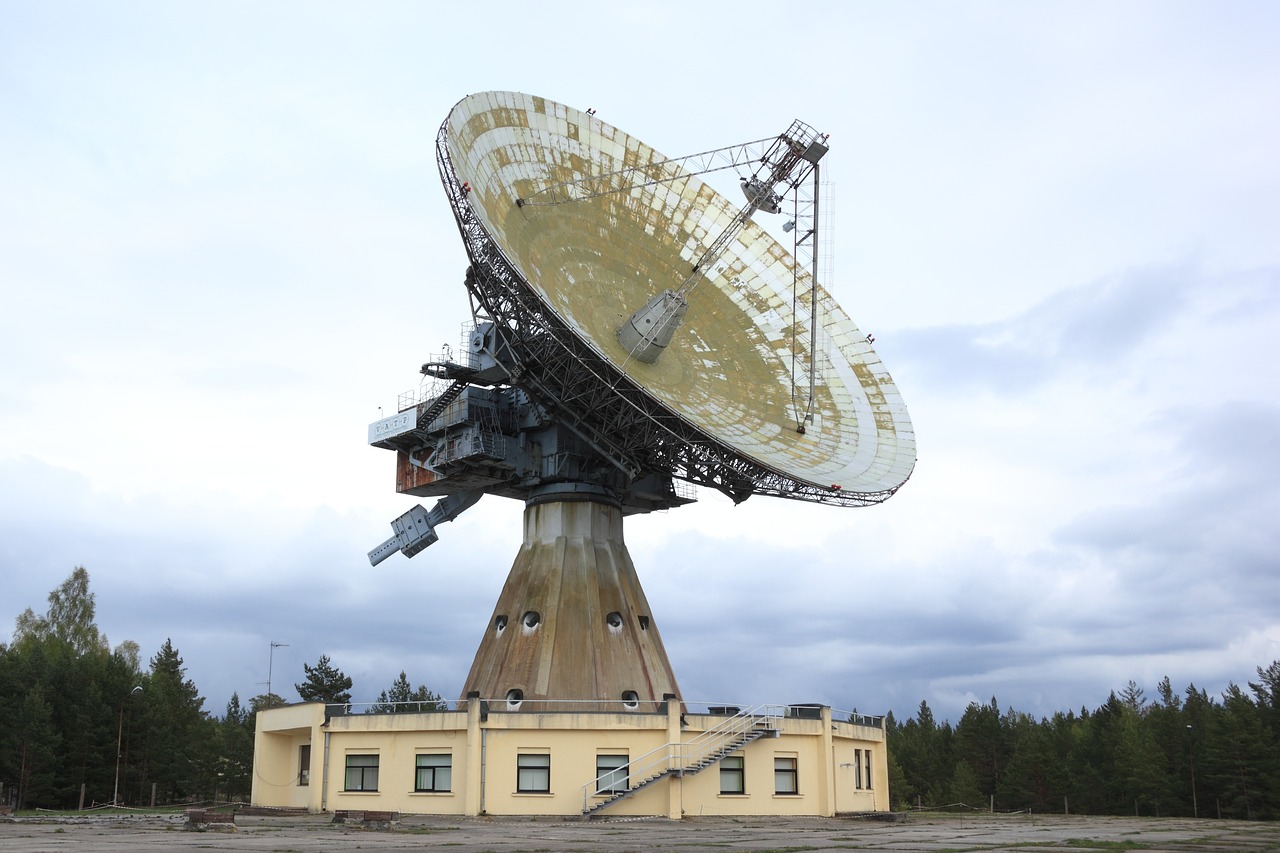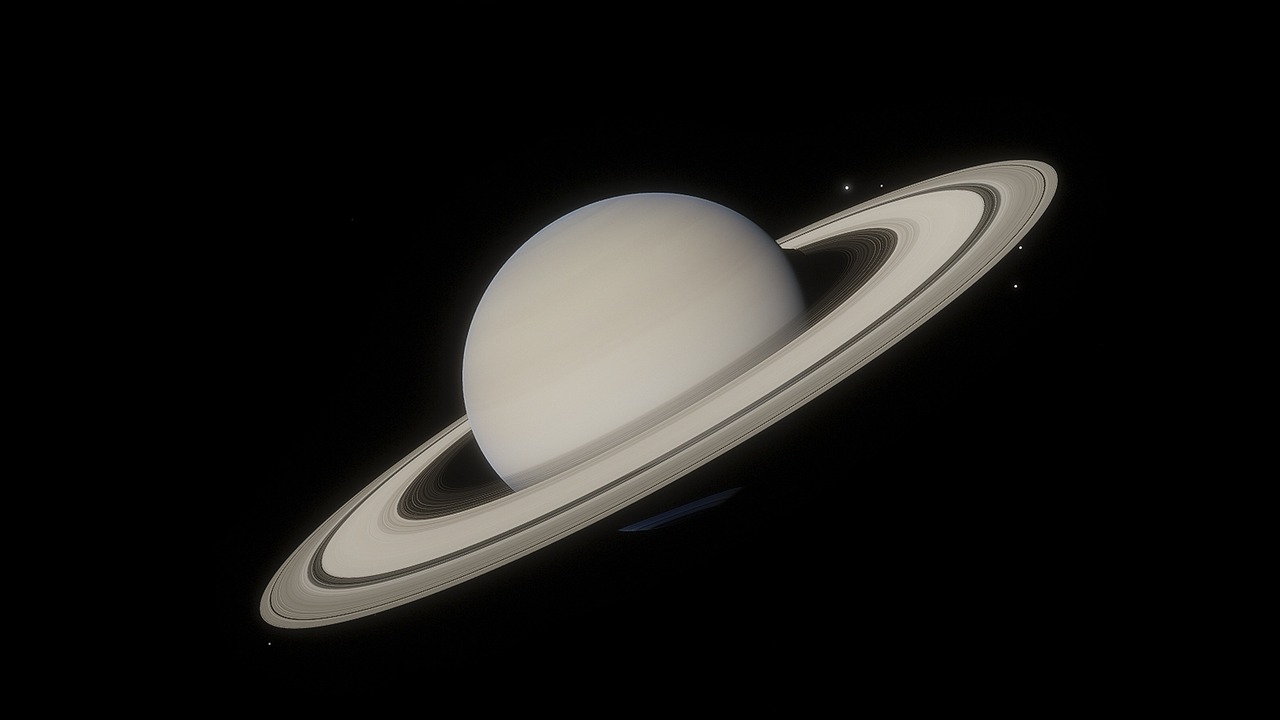The Philosophy of Physical Sciences
This article explores the intersection of philosophy and physical sciences, examining foundational concepts, major theories, and the implications of scientific discoveries on our understanding of reality and existence. The relationship between these two fields is not just a matter of academic interest; it fundamentally shapes how we perceive the universe and our place within it. As we delve into this intricate tapestry, we will uncover how philosophical inquiry has influenced scientific methodologies and vice versa, creating a dialogue that has persisted through centuries.
To understand the philosophy of physical sciences, we must first look back at its historical foundations. The journey begins with ancient philosophers like Aristotle, who laid the groundwork for scientific thought by emphasizing observation and empirical evidence. His ideas were revolutionary at the time, shifting the focus from abstract reasoning to a more systematic approach to understanding nature. Fast forward to the Renaissance, where figures like Galileo Galilei and Isaac Newton further refined these concepts, introducing rigorous experimentation and mathematical modeling. Their contributions not only advanced the physical sciences but also sparked philosophical debates about causality and the nature of reality.
As we dive deeper into the philosophy of physical sciences, several key questions arise. What is the nature of reality? How do we define causality? And perhaps most importantly, what are the limits of human knowledge? These questions are not merely academic; they have profound implications for how we understand ourselves and the universe. Each scientific discovery challenges our existing beliefs, prompting us to reconsider what we know and how we know it.
When it comes to the nature of reality, physical sciences offer a lens through which we can examine our existence. Concepts such as materialism and idealism come into play, creating a dichotomy that influences philosophical discourse. Materialism posits that only physical matter exists, while idealism suggests that reality is mentally constructed. This debate is not just theoretical; it has real-world implications. For instance, when scientists discover new particles or forces, they challenge our preconceived notions of what constitutes reality. This leads us to question: if our understanding of reality is constantly evolving, can we ever truly know the essence of existence?
The clash between materialism and idealism is a fascinating one. On one hand, materialists argue that all phenomena can be explained through physical processes, relying heavily on empirical evidence. On the other hand, idealists contend that our perceptions and consciousness shape our understanding of the world. This philosophical tug-of-war influences how we interpret scientific findings. For example, the discovery of quantum mechanics introduced concepts that seemed to blur the lines between materialism and idealism, suggesting that observation itself can alter reality. This paradox invites us to ponder the very fabric of existence.
Another critical perspective in this discourse is scientific realism. This philosophy posits that scientific theories accurately describe the world, even if they are not directly observable. Proponents argue that the success of scientific theories in predicting phenomena is evidence that they reflect an underlying reality. However, this raises philosophical questions: Are we merely constructing models that work, or are we uncovering the true nature of the universe? The implications of this debate are significant, as they affect how we approach scientific inquiry and the validity of our knowledge.
As we navigate the vast landscape of physical sciences, we must confront the limits of human knowledge. The pursuit of understanding often leads us to the edge of what we can comprehend. Skepticism plays a vital role here, serving as a reminder that our knowledge is provisional and subject to revision. As new discoveries emerge, they challenge established theories, leading us to question the very foundations of our understanding. This philosophical stance encourages a humble approach to science, recognizing that the quest for knowledge is an ongoing journey rather than a destination.
The scientific method stands as a cornerstone of modern physical sciences, serving as a philosophical tool that guides inquiry. Its principles—observation, hypothesis formulation, experimentation, and revision—are not just practical steps; they embody a philosophical commitment to understanding the world through evidence. This method has evolved over time, influenced by philosophical debates about the nature of knowledge and reality.
Induction and deduction are two fundamental processes in scientific reasoning. Induction involves drawing general conclusions from specific observations, while deduction applies general principles to predict specific outcomes. Both methods are essential for developing robust scientific theories, yet they also raise philosophical questions about the nature of inference and the reliability of our conclusions. For instance, can we ever be certain that our inductive reasoning leads to true conclusions, or are we merely betting on the consistency of nature?
One of the most significant concepts in the philosophy of science is falsifiability, introduced by philosopher Karl Popper. This criterion distinguishes scientific theories from non-scientific claims, emphasizing that a theory must be testable and refutable. The implications of this principle are profound, as it challenges scientists to continually refine their hypotheses and embrace uncertainty. In a world where knowledge is constantly evolving, the ability to question and revise our understanding is crucial.
In today's world, technology plays a pivotal role in shaping our understanding of the universe. From advanced telescopes that explore distant galaxies to particle accelerators that delve into the subatomic realm, technological advancements have expanded the horizons of physical sciences. However, these developments also raise philosophical questions about the nature of knowledge and our relationship with the universe. Are we merely observers, or do we actively shape reality through our technological interventions?
As we navigate the complexities of scientific research, ethical considerations come to the forefront. Scientists bear a responsibility not only to their field but also to society as a whole. The moral implications of scientific discoveries—be it in genetics, artificial intelligence, or environmental science—are subjects of intense philosophical debate. How do we balance the pursuit of knowledge with ethical considerations? This question is vital as we strive to ensure that scientific advancements benefit humanity rather than harm it.
Artificial intelligence is revolutionizing the landscape of physical sciences, raising intriguing philosophical questions about the nature of intelligence and creativity. As AI systems become more capable of conducting research and generating hypotheses, we must consider the implications for scientific inquiry. Are we witnessing the dawn of a new era where machines contribute to our understanding of the universe, or are we risking the loss of human intuition and creativity in the process? These questions challenge us to rethink the boundaries of science and the role of human agency in discovery.
- What is the philosophy of physical sciences? It is the study of the foundational concepts, theories, and implications of scientific discoveries in relation to our understanding of reality and existence.
- How do historical figures influence modern science? Key philosophers and scientists from history have shaped methodologies and theories that underpin contemporary scientific thought.
- What is scientific realism? It is the belief that scientific theories accurately describe the world, even if those theories are not directly observable.
- Why is skepticism important in science? Skepticism encourages a critical approach to knowledge, reminding us that our understanding is provisional and subject to change.
- How does technology impact our understanding of science? Technological advancements expand our ability to explore and understand the universe, but they also raise ethical and philosophical questions.

Historical Foundations
The historical development of physical sciences is a fascinating journey that intertwines the thoughts of brilliant philosophers and groundbreaking scientists. It is a story that begins in ancient civilizations, where early thinkers sought to understand the natural world through observation and reasoning. Figures like Aristotle and Plato laid the groundwork for scientific inquiry, emphasizing the importance of empirical evidence and rational thought. Their ideas dominated Western philosophy for centuries, shaping how we perceive the universe.
As we moved into the Renaissance, a period marked by a renewed interest in science and the arts, we saw a significant shift. The likes of Galileo Galilei and Isaac Newton revolutionized the way we approached scientific problems. Galileo’s use of the telescope opened our eyes to celestial phenomena, while Newton’s laws of motion and universal gravitation provided a framework for understanding the physical world that was both mathematical and predictive. These advancements did not just change science; they altered our very perception of reality itself.
In the 18th century, the Age of Enlightenment further propelled scientific thought, as thinkers like Immanuel Kant began to ponder the implications of scientific discoveries on human knowledge and existence. Kant argued that our understanding of the world is shaped by both our experiences and our innate concepts, leading to a more profound inquiry into the nature of reality and the limits of human comprehension.
Throughout the 19th and 20th centuries, the physical sciences continued to evolve, driven by the contributions of figures such as Charles Darwin with his theory of evolution, and Albert Einstein, whose theories of relativity challenged conventional notions of space and time. These revolutionary ideas prompted a reevaluation of philosophical doctrines, igniting debates about determinism, free will, and the nature of existence itself.
To illustrate the interplay between philosophy and physical sciences, consider the following table that highlights key figures and their contributions:
| Philosopher/Scientist | Contribution | Era |
|---|---|---|
| Aristotle | Foundational concepts in natural philosophy | 4th Century BC |
| Galileo Galilei | Improvement of the telescope; heliocentrism | 17th Century |
| Isaac Newton | Laws of motion; universal gravitation | 17th Century |
| Charles Darwin | Theory of evolution by natural selection | 19th Century |
| Albert Einstein | Theory of relativity; impact on time and space | 20th Century |
These historical foundations have not only shaped the physical sciences but have also posed profound philosophical questions that continue to resonate today. The dialogue between science and philosophy is ongoing, as each new discovery invites us to rethink our understanding of the universe and our place within it. As we delve deeper into the realms of quantum mechanics and cosmology, we find ourselves grappling with the very essence of existence, reality, and the limits of human perception.

Key Philosophical Questions
When we dive into the realm of physical sciences, we quickly realize that it's not just about equations and experiments; it's about the big questions that challenge our understanding of reality itself. What is the nature of existence? How do we define causality? And perhaps most intriguingly, what are the limits of human knowledge? These questions are not merely academic; they resonate deeply with our daily lives and shape our worldview. The interplay between science and philosophy invites us to ponder not only what we know but also how we know it, leading us down a rabbit hole of inquiry that can feel both exhilarating and daunting.
At the heart of these discussions lies the nature of reality. What does it mean to exist? Physical sciences offer a lens through which we can explore this question, suggesting that reality is not just a collection of objects but a complex tapestry woven from interactions, forces, and energies. Concepts like materialism and idealism emerge as two dominant perspectives in this discourse. Materialism posits that only physical matter truly exists, while idealism argues that reality is fundamentally shaped by our perceptions and consciousness. This philosophical dichotomy invites us to consider how scientific discoveries, such as quantum mechanics and relativity, challenge our traditional notions of existence.
When we compare materialism and idealism, we see that each perspective offers unique insights into the findings of physical sciences. Materialists might argue that the universe operates independently of our thoughts, grounded in tangible laws and principles. In contrast, idealists would contend that our understanding of the universe is inherently subjective, colored by human experience and interpretation. This clash of ideas not only enriches philosophical discourse but also raises questions about the implications of scientific theories. For instance, if our understanding of reality is shaped by our perceptions, can we ever truly know the universe as it is?
Another pivotal concept in this discussion is scientific realism, which posits that scientific theories provide an accurate description of the world. This viewpoint suggests that the entities and processes described by science—be it atoms, forces, or fields—exist independently of our observations. However, this stance is not without its critics. Some philosophers argue that scientific theories are merely useful fictions, tools for navigating the complexities of the universe rather than definitive truths. This debate opens up a fascinating dialogue about the nature of knowledge and the role of observation in shaping our understanding of reality.
As we grapple with these profound questions, we inevitably encounter the limits of human knowledge. No matter how advanced our scientific methods become, there will always be mysteries that elude our grasp. This brings us to the realm of epistemology, the study of knowledge itself. Can we ever claim to truly know anything? Skepticism plays a crucial role here, prompting us to question the validity of our beliefs and the reliability of our senses. The more we learn through physical sciences, the more we realize how much remains unknown, which can be both humbling and inspiring.
In summary, the intersection of physical sciences and philosophy is a rich tapestry woven from fundamental questions that challenge our understanding of reality, knowledge, and existence. As we continue to explore these themes, we are not just uncovering the secrets of the universe; we are also engaging in a profound dialogue about what it means to be human in a world governed by scientific laws and philosophical inquiry.
- What is the main focus of the philosophy of physical sciences?
The philosophy of physical sciences examines the foundational concepts, theories, and implications of scientific discoveries on our understanding of reality and existence. - How do materialism and idealism differ?
Materialism asserts that only physical matter exists, while idealism posits that reality is shaped by our perceptions and consciousness. - What is scientific realism?
Scientific realism is the belief that scientific theories accurately describe the world and that the entities described by science exist independently of our observations. - What role does skepticism play in scientific inquiry?
Skepticism encourages questioning the validity of beliefs and the reliability of senses, highlighting the limitations of human knowledge.

The Nature of Reality
The exploration of reality through the lens of physical sciences is akin to peering through a window into the universe. As we delve deeper, we encounter fundamental questions that challenge our perceptions and beliefs about existence. What is real? Is the universe merely a collection of particles, or is there something more profound at play? These inquiries have fueled debates among philosophers and scientists alike, leading to intriguing concepts such as materialism and idealism.
Materialism posits that everything in the universe, including thoughts and emotions, can be explained by physical processes. In contrast, idealism suggests that reality is fundamentally mental, constructed by our consciousness. This dichotomy raises fascinating implications for how we interpret scientific findings. For example, when physicists uncover the mysteries of quantum mechanics, does it reinforce a materialist viewpoint, or does it hint at the existence of a deeper, more abstract reality that idealists might argue for?
To illustrate this point, consider the following table that summarizes the key differences between materialism and idealism:
| Aspect | Materialism | Idealism |
|---|---|---|
| Definition | Reality consists of physical matter. | Reality is fundamentally mental or spiritual. |
| View on Consciousness | Consciousness arises from physical processes. | Consciousness shapes and creates reality. |
| Scientific Perspective | Science explains everything through physical laws. | Science is limited and cannot capture the whole truth. |
Furthermore, the concept of scientific realism emerges as a crucial player in this philosophical discourse. Scientific realism argues that scientific theories provide a true account of the world, suggesting that our understanding of reality is not merely a construct but a reflection of an objective universe. This perspective challenges us to consider whether our scientific models are simply useful tools or accurate representations of the underlying reality.
However, this brings us to a critical juncture: the limits of human knowledge. Can we ever truly grasp the essence of reality, or are we forever bound by the constraints of our perception? The more we learn through the physical sciences, the more we realize that our understanding is continually evolving. Each discovery opens new avenues of inquiry, revealing layers of complexity that challenge our previous notions.
In essence, the nature of reality as examined through physical sciences is a dynamic interplay between observation, interpretation, and philosophical inquiry. It prompts us to reflect on our own beliefs and the frameworks through which we understand the universe. Are we mere spectators in a grand cosmic play, or do we have a role in shaping the narrative of existence? These questions not only intrigue philosophers but also inspire scientists to push the boundaries of what we know.
- What is the difference between materialism and idealism?
Materialism asserts that reality is made up of physical substances, while idealism posits that reality is fundamentally mental or spiritual. - How does scientific realism relate to our understanding of reality?
Scientific realism suggests that scientific theories accurately describe the world, implying that our understanding of reality is based on objective truths discovered through science. - Can we ever fully understand the nature of reality?
While we can gain insights through scientific inquiry, the ever-evolving nature of knowledge means that our understanding of reality may always be incomplete.

Materialism vs. Idealism
When we dive into the philosophical debate between materialism and idealism, we're not just scratching the surface of thought; we're engaging with the very essence of how we perceive our existence and the universe around us. At its core, materialism posits that the only thing that truly exists is matter. Everything we experience, from our thoughts to our emotions, is a result of physical interactions. Imagine a complex machine where every cog and wheel has a purpose; this is how materialists view reality. They argue that understanding the physical world through sciences like physics and chemistry provides a comprehensive explanation of everything, including consciousness itself.
On the flip side, idealism takes a different stance. It suggests that reality is primarily shaped by our perceptions and mental constructs. Think of it as a canvas painted with the brushstrokes of our thoughts and experiences. Idealists argue that what we perceive as 'real' is fundamentally influenced by our minds. This raises intriguing questions: Is reality a concrete entity, or is it merely a projection of our consciousness? For idealists, the physical world is significant, but it is secondary to the mental realm. They posit that our ideas and perceptions are what truly shape our understanding of existence.
To illustrate the differences between these two philosophies, consider the following table:
| Aspect | Materialism | Idealism |
|---|---|---|
| Nature of Reality | Physical and material | Mental and conceptual |
| Source of Knowledge | Empirical evidence and scientific inquiry | Intuition and mental constructs |
| View on Consciousness | Emerges from physical processes | Fundamentally shapes reality |
The implications of these perspectives are profound. For instance, when scientists make groundbreaking discoveries, a materialist might argue that these findings prove the physical nature of reality, while an idealist might contend that our interpretation of these findings is what gives them meaning. This philosophical tug-of-war not only enriches our understanding of scientific discoveries but also challenges us to reflect on our own beliefs about existence.
Ultimately, the debate between materialism and idealism is not merely academic; it invites us to ponder the very nature of our reality. Are we just sophisticated machines operating in a vast universe, or are we the artists of our own existence, painting our realities with the colors of our thoughts? Each perspective offers valuable insights, and perhaps the truth lies somewhere in between, a beautiful blend of matter and mind.
- What is materialism? Materialism is the philosophical view that only physical matter exists and that all phenomena, including consciousness, can be explained in terms of material interactions.
- What is idealism? Idealism is the philosophical stance that reality is primarily shaped by our perceptions and mental constructs, emphasizing the role of the mind in defining existence.
- How do materialism and idealism differ in their view of consciousness? Materialism views consciousness as a byproduct of physical processes, while idealism sees it as a fundamental component that shapes reality.

Scientific Realism
is a philosophical position that asserts that the universe described by science is real, regardless of how it may be interpreted. This perspective holds that scientific theories, when properly formulated, provide an accurate depiction of the world around us. Imagine standing in a vast library filled with countless books; each book represents a scientific theory. Scientific realism suggests that these books contain truths about the universe, not mere stories or fables. But what does this mean for how we understand our reality?
At its core, scientific realism posits that the entities and processes described by scientific theories—like atoms, genes, and gravitational waves—actually exist in the physical world. This is crucial because it allows us to make sense of our experiences and observations. For instance, when we observe a chemical reaction, scientific realism supports the idea that the molecules involved are real, and their interactions can be described through scientific laws. This belief in the reality of scientific constructs enables us to build upon previous knowledge and develop new technologies that shape our daily lives.
However, the concept of scientific realism is not without its challenges. Critics argue that scientific theories are merely useful instruments for predicting phenomena rather than accurate representations of reality. This perspective is often associated with instrumentalism, which suggests that the value of a theory lies in its ability to predict outcomes rather than its truthfulness. For instance, consider the debate surrounding the existence of subatomic particles. While scientific realism would argue that particles like quarks and leptons are real, instrumentalists might contend that these concepts are simply useful fictions that help us make sense of experimental data.
To further illustrate the nuances of scientific realism, let’s consider two key arguments that support this philosophical stance:
- Success of Science: The remarkable success of scientific theories in explaining and predicting natural phenomena suggests that they are likely true. The fact that we can send spacecraft to distant planets using the laws of physics supports the idea that these theories accurately reflect reality.
- Convergence of Theories: Over time, scientific theories tend to converge towards a unified understanding of the universe. For example, the development of quantum mechanics and relativity has led to a deeper understanding of the fundamental forces of nature, reinforcing the idea that there is a coherent reality underlying our observations.
Despite these arguments, the debate between scientific realism and its alternatives continues to be a vibrant area of discussion in philosophy. Questions arise, such as: Can we truly know the entities that science posits? What happens when scientific theories are replaced or refuted? These inquiries challenge our understanding of knowledge and existence, pushing the boundaries of what we consider to be "real."
In conclusion, scientific realism offers a compelling framework for understanding the relationship between scientific theories and the nature of reality. By asserting that the world described by science is indeed real, it invites us to explore the depths of our universe with curiosity and wonder. As we continue to make discoveries that reshape our understanding, the dialogue between science and philosophy remains crucial in our quest for knowledge.
- What is scientific realism? Scientific realism is the belief that scientific theories provide a true description of the world and that the entities they describe exist independently of our observations.
- How does scientific realism differ from instrumentalism? While scientific realism asserts that theories are true representations of reality, instrumentalism views theories as useful tools for making predictions without necessarily being true.
- Why is scientific realism important? It helps us understand the nature of scientific inquiry and supports the notion that scientific progress leads to a deeper understanding of reality.

Limits of Human Knowledge
The journey of understanding our universe is both exhilarating and humbling. When we delve into the , we encounter a vast landscape filled with questions that often lead us to more questions than answers. This paradox is at the heart of scientific inquiry, where every discovery seems to unveil new mysteries. Have you ever pondered how much we truly know about the cosmos? Or how our understanding is shaped by the very tools we use to explore it?
In the realm of physical sciences, the limitations of human knowledge manifest in several intriguing ways. For instance, consider the concept of epistemology, which is the study of knowledge—its scope, limits, and validity. This field raises essential questions about what it means to know something. Are our senses reliable? Can we trust our interpretations of scientific data? These inquiries highlight the inherent challenges we face in our quest for understanding.
One significant limitation is the inherent bias in human perception. Our senses are not infallible; they can deceive us. For example, optical illusions demonstrate how our brains can interpret visual information incorrectly. This raises a critical question: If our senses can mislead us, how can we be sure that our scientific observations are accurate? This skepticism is not merely a hurdle; it's a necessary component of scientific progress, pushing us to refine our methods and assumptions continually.
Moreover, the theory of relativity introduced by Einstein illustrates another profound limitation. It challenges the notion of absolute knowledge by suggesting that observations can vary based on the observer's frame of reference. This idea leads us to confront the possibility that our understanding of the universe might be fundamentally limited by our perspective. In essence, we are like fish in a vast ocean, swimming in a world we can barely comprehend, with our knowledge confined to the depths we can explore.
Additionally, the complexity of the universe itself poses challenges. The more we learn about quantum mechanics and the fundamental particles that govern our reality, the more we realize how much remains beyond our grasp. For instance, the behavior of particles at the quantum level often defies classical logic, leaving scientists grappling with concepts that challenge our traditional understanding of causality and existence. This complexity can be likened to trying to solve a puzzle with pieces that keep changing shape!
To illustrate these limitations further, consider the following table that summarizes some key challenges in our understanding:
| Challenge | Description |
|---|---|
| Human Perception | Our senses can mislead us, affecting our observations and interpretations. |
| Relativity | Knowledge can vary based on the observer's frame of reference, complicating absolute truths. |
| Quantum Complexity | The behavior of particles often defies classical logic, challenging our understanding of reality. |
Ultimately, the limits of human knowledge remind us of the beautiful complexity of existence. As we push the boundaries of what we know, we must also embrace the uncertainties that come with it. It's a dance between discovery and humility, where every answer opens up a new realm of questions. So, as we venture further into the unknown, let's keep our minds open and our curiosity alive, for it is in the quest for knowledge that we find the essence of what it means to be human.
- What are the main limitations of human knowledge? - The main limitations include biases in perception, the relativity of observations, and the complexity of quantum mechanics.
- How does skepticism play a role in scientific inquiry? - Skepticism encourages critical thinking and the refinement of methods, ensuring that scientific conclusions are robust and reliable.
- Can we ever fully understand the universe? - While we may uncover many truths, there will always be mysteries that challenge our understanding, keeping the quest for knowledge ongoing.

Scientific Method and Philosophy
The scientific method stands as a cornerstone of modern physical sciences, intertwining deeply with philosophical inquiry. At its core, the scientific method is a systematic approach to understanding the natural world, characterized by observation, experimentation, and the formulation of hypotheses. But how does this method reflect philosophical principles? The answer lies in the very nature of knowledge and how we come to acquire it. The scientific method not only seeks to explain phenomena but also challenges us to question our assumptions, thereby inviting a philosophical examination of our understanding of existence.
One of the most significant philosophical implications of the scientific method is its reliance on empiricism, the idea that knowledge is derived from sensory experience. This principle raises questions about the nature of reality itself: if our understanding of the world is based solely on what we can observe, what happens to phenomena that are beyond our sensory perception? This leads us to ponder the limits of human knowledge and the extent to which we can claim to understand the universe. The dialectic between observation and theory is a rich ground for philosophical discourse, as it challenges the boundaries of scientific inquiry.
Moreover, the scientific method is inherently iterative. Scientists propose theories, conduct experiments, and refine their ideas based on the outcomes. This process mirrors the philosophical tradition of dialectics, where ideas are continuously tested and re-evaluated. It prompts us to consider: can we ever reach absolute knowledge, or are we forever in a state of flux, adapting our understanding as new evidence emerges? This question resonates with the philosophical notion of skepticism, which encourages us to remain open to doubt and alternative explanations.
In addition, the scientific method employs both induction and deduction as tools for reasoning. Induction involves drawing general conclusions from specific observations, while deduction works the other way around, applying general principles to predict specific outcomes. This interplay is crucial in the development of scientific theories and is laden with philosophical significance. For instance, how do we justify the leap from observed phenomena to broader generalizations? Is our reliance on induction a reliable path to truth, or does it leave room for error? These questions echo throughout the philosophical landscape, prompting discussions about the nature of evidence and the justification of belief.
To illustrate the relationship between the scientific method and philosophy, consider the following table that summarizes key components:
| Component | Scientific Method | Philosophical Implication |
|---|---|---|
| Observation | Collecting data through senses | Challenges the nature of reality |
| Hypothesis | Proposing explanations | Invites scrutiny and debate |
| Experimentation | Testing hypotheses | Reflects the iterative nature of knowledge |
| Conclusion | Drawing insights from data | Questions the certainty of knowledge |
The concept of falsifiability also plays a pivotal role in distinguishing scientific claims from non-scientific ones. Proposed by philosopher Karl Popper, falsifiability asserts that for a theory to be considered scientific, it must be testable and refutable. This notion prompts us to think critically about the theories we accept and the evidence we require to validate them. It raises profound questions about the nature of truth in science: Are we merely constructing models that fit our observations, or do we genuinely uncover the workings of the universe?
In conclusion, the scientific method is not merely a procedural tool; it is a profound philosophical endeavor that shapes our understanding of the universe. It invites us to engage with fundamental questions about reality, knowledge, and the nature of existence. By embracing the interplay between science and philosophy, we can cultivate a deeper appreciation for the mysteries of the cosmos and our place within it.
- What is the scientific method? The scientific method is a systematic approach to inquiry that involves observation, experimentation, and the formulation of hypotheses.
- How does philosophy relate to the scientific method? Philosophy provides a framework for understanding the implications of the scientific method, particularly concerning knowledge, reality, and the limits of human understanding.
- What is falsifiability? Falsifiability is the principle that a scientific theory must be testable and able to be proven wrong to be considered scientific.
- Why is induction important in science? Induction allows scientists to draw general conclusions from specific observations, forming the basis for many scientific theories.

Induction and Deduction
When we dive into the fascinating world of scientific reasoning, two terms often come up: induction and deduction. These methods are like the yin and yang of scientific inquiry, each playing a crucial role in how we develop theories and understand the universe around us. But what exactly do these terms mean, and how do they interact within the context of physical sciences? Let's break it down.
Induction is the process of deriving general principles from specific observations. Think of it as a detective piecing together clues to form a broader narrative. For instance, if you observe that the sun rises in the east every morning, you might conclude that the sun always rises in the east. This leap from specific instances to a general rule is the essence of inductive reasoning. It’s a powerful tool, but it comes with its own set of challenges. Inductive conclusions can never be absolutely certain; they are inherently probabilistic. This means that while we can gather evidence to support our theories, we must always be open to the possibility that new evidence could contradict our conclusions.
On the other hand, deduction works in the opposite direction. It starts with general principles and applies them to specific cases. Imagine you have a universal law: all humans are mortal. If you know that Socrates is a human, you can deduce that Socrates is mortal. This method provides a level of certainty that induction often lacks. However, the effectiveness of deduction relies heavily on the accuracy of the initial premises. If any of your general statements are flawed, your conclusions will also be flawed.
To illustrate the differences more clearly, let’s take a look at the following table:
| Aspect | Induction | Deduction |
|---|---|---|
| Direction | Specific to general | General to specific |
| Certainty | Probabilistic | Certain (if premises are true) |
| Example | All observed swans are white; therefore, all swans are white. | All mammals are warm-blooded; therefore, a dog is warm-blooded. |
In the realm of physical sciences, both induction and deduction are indispensable. Scientists often start with observations (induction) to formulate hypotheses, which they then test through experiments. The results of these experiments can either support or refute the hypotheses, leading to further inductive reasoning. This iterative process is what drives scientific progress.
However, the interplay between induction and deduction also raises some intriguing philosophical questions. For instance, how do we justify our inductive inferences? Is there a way to ensure that our inductive reasoning is sound? These questions delve into the philosophy of science and challenge us to think critically about the foundations of our knowledge.
In conclusion, understanding the roles of induction and deduction is essential for anyone interested in the physical sciences. They are not just abstract concepts; they are the very tools that scientists use to explore the mysteries of our universe. So, the next time you ponder a scientific theory, consider whether the reasoning behind it is inductive, deductive, or perhaps a blend of both. This awareness can deepen your appreciation for the complexities of scientific inquiry.
- What is the main difference between induction and deduction? Induction moves from specific observations to broader generalizations, while deduction moves from general principles to specific conclusions.
- Can induction lead to certainty? No, induction provides probabilistic conclusions, which means they can be challenged by new evidence.
- Why are both methods important in science? Both methods complement each other; induction helps form hypotheses, while deduction tests those hypotheses.

Falsifiability
When we dive into the heart of scientific inquiry, one concept stands out as a beacon guiding researchers through the murky waters of theory and evidence: . Coined by the philosopher Karl Popper, this principle asserts that for a theory to be considered scientific, it must be testable and, importantly, capable of being proven false. In simpler terms, if a claim cannot be disproven, it doesn't belong in the realm of science. This idea flips the traditional notion of verification on its head, emphasizing that the strength of a scientific theory lies not in its ability to be proven right but in its potential to be proven wrong.
Consider this: if someone claims that "all swans are white," this statement is scientific only if it can be tested. If a researcher travels the world and finds a single black swan, the claim is falsified. This principle encourages a dynamic approach to science, where theories are continuously challenged and refined based on new evidence. Falsifiability, therefore, serves as a cornerstone for distinguishing scientific theories from non-scientific claims, such as those found in pseudoscience or metaphysics, which often evade rigorous testing.
But why is this so crucial? The implications of falsifiability extend far beyond the laboratory. They shape our understanding of reality and influence philosophical discourse. For instance, consider the debate surrounding the existence of extraterrestrial life. The hypothesis that "aliens exist" can be approached scientifically if it proposes a way to test and potentially disprove it. Conversely, a vague assertion like "aliens are everywhere" lacks the precision needed for scientific scrutiny, rendering it unfalsifiable and, thus, outside the scientific domain.
Furthermore, the idea of falsifiability has profound implications for how we interpret scientific progress. It suggests that science is a never-ending journey of exploration and revision. As new data emerges, theories that once seemed robust may crumble under scrutiny, while others might evolve into more comprehensive explanations. This fluidity is what keeps science vibrant and relevant. It’s akin to navigating a river; the current may shift, and the path may change, but the journey is what leads us to deeper understanding.
To illustrate the concept of falsifiability, consider the following table that contrasts scientific theories with non-scientific claims:
| Criteria | Scientific Theory | Non-Scientific Claim |
|---|---|---|
| Testability | Can be tested and potentially disproven | Cannot be tested or falsified |
| Evidence | Relies on empirical evidence | Often based on anecdotal evidence |
| Adaptability | Can evolve with new findings | Usually remains static |
| Examples | Theory of Evolution | Astrology |
In conclusion, falsifiability is not just a technical term; it's a philosophical lens through which we can assess the validity and reliability of scientific claims. It invites us to question, to test, and ultimately to embrace the uncertainty that is inherent in the pursuit of knowledge. As we continue to explore the universe and unravel its mysteries, the principle of falsifiability will remain a guiding light, reminding us that in science, the journey is as important as the destination.
- What does falsifiability mean? Falsifiability refers to the ability of a theory to be tested and potentially proven false, which is a key criterion for scientific validity.
- Why is falsifiability important in science? It helps distinguish scientific theories from non-scientific claims, ensuring that scientific knowledge is based on testable and observable evidence.
- Can a theory be scientific if it is not falsifiable? No, if a theory cannot be tested or disproven, it is not considered scientific.
- How does falsifiability affect scientific progress? It encourages continuous testing and refinement of theories, allowing science to adapt and grow with new evidence.

The Impact of Technology
The influence of technology on physical sciences is nothing short of revolutionary. As we sail through the 21st century, the integration of advanced technology into scientific research has sparked a profound transformation in our understanding of the universe. Imagine standing on the shoulders of giants, where each technological advancement propels us further into realms once thought unreachable. From the development of sophisticated telescopes that allow us to peer into distant galaxies to particle accelerators that unveil the fundamental building blocks of matter, technology is the key that unlocks the door to new scientific frontiers.
One of the most significant impacts of technology in the physical sciences is its ability to collect and analyze vast amounts of data. The advent of big data analytics and machine learning algorithms has reshaped how scientists approach research. These tools enable researchers to identify patterns and correlations that were previously hidden, leading to groundbreaking discoveries. For instance, in fields such as climate science, technology allows for the modeling of complex systems, providing insights into climate change and its potential impacts on our planet. The ability to simulate various scenarios can help policymakers make informed decisions, highlighting the intersection of science and societal responsibility.
Moreover, technology has revolutionized experimental methods. The precision of modern instruments means that experiments can be conducted with a level of accuracy that was unimaginable just a few decades ago. Take, for example, the use of CRISPR technology in genetics. This powerful tool allows scientists to edit genes with pinpoint precision, opening up new avenues for research in medicine and agriculture. The ethical implications of such advancements are vast, posing questions about the morality of altering life itself. Here, philosophy and physical sciences collide, as we must contemplate not only what we can do but what we should do.
In addition to enhancing research capabilities, technology also democratizes access to scientific knowledge. Online platforms and open-source software have made it easier for individuals and institutions worldwide to engage with scientific data and findings. This shift fosters collaboration and innovation, as scientists can share their work and build upon each other’s discoveries. However, this accessibility also raises questions about misinformation and the reliability of sources. In a world where anyone can publish findings online, discerning credible information from the noise becomes a critical skill for both scientists and the public.
The ethical considerations surrounding technological advancements in physical sciences cannot be overlooked. As we harness the power of technology, we must also grapple with the responsibilities that come with it. Scientists are often at the forefront of debates regarding the implications of their work. For instance, the development of artificial intelligence (AI) in scientific research raises significant philosophical questions. What happens when machines begin to make decisions that were traditionally the domain of human intellect? As AI systems become more autonomous, we must consider the ethical frameworks that govern their use in research and the potential consequences for society.
In summary, the impact of technology on physical sciences is profound and multifaceted. It enhances our research capabilities, democratizes access to knowledge, and presents ethical dilemmas that challenge our understanding of morality in the scientific realm. As we continue to navigate this technological landscape, it is essential to maintain a dialogue between the sciences and philosophy, ensuring that our pursuit of knowledge is guided by ethical considerations and a commitment to the greater good.
- How has technology changed the way scientists conduct research?
Technology has introduced advanced tools for data collection and analysis, allowing for greater precision and efficiency in experiments. - What role does AI play in physical sciences?
AI assists in data analysis, modeling complex systems, and even in conducting experiments, but it also raises ethical concerns about autonomy and decision-making. - What are the ethical implications of technological advancements in science?
Technological advancements often lead to ethical dilemmas regarding the consequences of research, such as gene editing and AI decision-making.

Ethics in Scientific Practice
When we dive into the world of scientific research, we often find ourselves grappling with a complex web of ethical considerations. Why is it that ethics plays such a crucial role in science? Simply put, the very essence of scientific inquiry can have profound implications on society, the environment, and even our understanding of what it means to be human. Think of science as a double-edged sword; while it has the potential to unlock incredible advancements, it also carries the responsibility of ensuring that these advancements do not come at the cost of ethical integrity.
One of the most pressing ethical dilemmas in scientific practice is the issue of human and animal experimentation. As researchers push the boundaries of knowledge, they must tread carefully to ensure that their quest for understanding does not lead to harm. For instance, consider the historical context of medical trials that have, in the past, disregarded the well-being of participants. This has led to a robust framework of ethical guidelines, such as the Declaration of Helsinki, which emphasizes the importance of informed consent and the welfare of subjects. It’s a reminder that behind every data point, there are real lives at stake.
Furthermore, the rise of technology in scientific research has introduced new ethical challenges. With the advent of genetic engineering, for example, we are faced with questions about the moral implications of altering the very fabric of life. Should we have the power to edit genes, and if so, to what extent? This is where ethics intersects with philosophy, prompting us to ponder not just what we can do, but what we ought to do. To illustrate this, consider the following table that highlights some key ethical principles in scientific practice:
| Ethical Principle | Description |
|---|---|
| Informed Consent | Participants should be fully informed about the research and voluntarily agree to participate. |
| Beneficence | Researchers should aim to maximize benefits and minimize harm to participants. |
| Justice | Fair distribution of the benefits and burdens of research among all groups in society. |
| Integrity | Researchers must conduct their work honestly and transparently, avoiding misconduct. |
Moreover, as we embrace the digital age, the ethical implications of data privacy and security in scientific research cannot be overlooked. With vast amounts of data being collected, often without explicit consent, scientists must navigate the treacherous waters of data ethics. How do we protect the privacy of individuals while still utilizing data for the greater good? This question is becoming increasingly relevant as we see data breaches and misuse of information making headlines.
In conclusion, the intersection of ethics and scientific practice is not merely an academic exercise; it is a vital part of ensuring that science serves humanity rather than harms it. As we continue to push the boundaries of what is possible, we must remain vigilant and committed to ethical principles that safeguard our collective future. After all, in the grand tapestry of life, every thread matters, and the choices we make today will resonate through generations to come.
- What is the importance of ethics in scientific research? Ethics ensures that scientific practices do not harm individuals or society, promoting integrity and responsibility.
- How do ethical guidelines impact scientific studies? Ethical guidelines help protect participants, ensuring informed consent and minimizing risks associated with research.
- What are some common ethical dilemmas in science? Common dilemmas include human and animal experimentation, data privacy, and the implications of genetic engineering.
- Why is informed consent crucial in research? Informed consent allows participants to make knowledgeable decisions about their involvement, safeguarding their autonomy and welfare.

The Role of AI in Science
Artificial Intelligence (AI) is increasingly becoming a pivotal component in the realm of physical sciences, reshaping how research is conducted, data is analyzed, and discoveries are made. Imagine having a tireless assistant that can sift through mountains of data in the blink of an eye, uncovering patterns and insights that would take humans months or even years to discern. This is precisely what AI brings to the table, revolutionizing our approach to scientific inquiry.
One of the most exciting aspects of AI in science is its ability to enhance predictive modeling. For instance, in fields like climate science, AI algorithms can analyze vast datasets that include historical climate patterns, satellite imagery, and even human activity data. By doing so, they can generate forecasts about future climate scenarios with remarkable accuracy. This capability not only aids scientists in understanding potential outcomes but also informs policymakers about necessary actions to mitigate climate change.
Moreover, AI's role extends beyond just data analysis; it also contributes to the automation of experiments. Consider the traditional lab environment, where researchers painstakingly conduct experiments, often facing limitations due to time and human error. With AI-driven automation, experiments can be designed, executed, and monitored with minimal human intervention. This not only accelerates the research process but also enhances reproducibility, a cornerstone of scientific integrity.
However, the integration of AI in science is not without its challenges. Ethical considerations arise, particularly concerning data privacy and the potential for bias in AI algorithms. For example, if AI systems are trained on biased datasets, they may produce skewed results, leading to flawed conclusions. This raises significant philosophical questions about the trustworthiness of AI-generated knowledge. Scientists and ethicists alike must grapple with these concerns to ensure that AI serves as a tool for enhancing human understanding rather than obfuscating it.
Furthermore, the advent of AI has sparked debates about the future role of scientists themselves. Will AI eventually replace the need for human intuition and creativity in scientific discovery? While AI can process and analyze data at unprecedented speeds, it lacks the innate curiosity and contextual understanding that humans bring to research. Thus, rather than viewing AI as a competitor, it may be more beneficial to see it as a collaborator—an advanced tool that can augment human capabilities and allow scientists to focus on higher-level questions and innovative thinking.
As we look to the future, the collaboration between AI and physical sciences is poised to deepen. With advancements in machine learning, natural language processing, and robotics, the potential for AI to transform scientific inquiry is boundless. From drug discovery in pharmaceuticals to unraveling the mysteries of the universe, the synergy between AI and science promises to push the boundaries of what we know and understand about our world.
- What is the role of AI in scientific research? AI assists in data analysis, predictive modeling, and automation of experiments, enhancing the efficiency and accuracy of scientific research.
- Are there ethical concerns related to AI in science? Yes, issues such as data privacy and algorithmic bias raise significant ethical questions that need to be addressed to ensure responsible AI use.
- Will AI replace scientists in the future? While AI can automate certain tasks, it is unlikely to replace scientists entirely, as human intuition and creativity remain vital in scientific discovery.
- How does AI improve predictive modeling in science? AI can analyze large datasets to identify patterns and trends, leading to more accurate predictions in various scientific fields.
Frequently Asked Questions
- What is the relationship between philosophy and physical sciences?
The relationship between philosophy and physical sciences is deeply intertwined. Philosophy provides the foundational questions that guide scientific inquiry, such as the nature of reality and the limits of human knowledge. Physical sciences, in turn, offer empirical evidence that can either support or challenge philosophical theories, creating a dynamic interplay that enriches our understanding of both fields.
- How have historical figures shaped modern scientific thought?
Historical figures like Aristotle, Galileo, and Newton have significantly influenced modern scientific thought. Their ideas about observation, experimentation, and the laws of nature laid the groundwork for contemporary scientific methodologies. By questioning existing beliefs and proposing new theories, these thinkers paved the way for advancements that continue to shape our understanding of the universe today.
- What are some key philosophical questions raised by physical sciences?
Physical sciences raise several key philosophical questions, including: What is the nature of reality? How do we determine causality? What are the limits of human knowledge? These questions challenge us to think critically about the implications of scientific discoveries and how they affect our understanding of existence and the universe.
- What is the difference between materialism and idealism?
Materialism posits that physical matter is the primary substance in nature, while idealism suggests that reality is fundamentally mental or spiritual. The debate between these two perspectives is crucial in understanding how we interpret scientific findings and their implications for our worldview. Each offers a different lens through which to view the discoveries of physical sciences.
- Why is scientific realism important?
Scientific realism is important because it argues that scientific theories accurately describe the world around us. This perspective has significant implications for philosophical inquiry, as it suggests that our understanding of reality is grounded in the evidence provided by scientific research, thus bridging the gap between empirical data and philosophical thought.
- What are the limits of human knowledge in the context of physical sciences?
The limits of human knowledge in physical sciences often stem from epistemological challenges, such as the inherent uncertainties in measurement and observation. Skepticism plays a vital role in scientific inquiry, prompting scientists to continuously question and refine their understanding of the universe, acknowledging that some aspects may remain beyond our grasp.
- How does the scientific method function as a philosophical tool?
The scientific method serves as a philosophical tool by providing a systematic approach to inquiry. It emphasizes observation, experimentation, and reasoning, which are essential for developing and testing theories. This method not only aids in scientific discovery but also raises philosophical questions about the nature of knowledge and the reliability of our methods.
- What is falsifiability, and why is it significant?
Falsifiability is the principle that a theory must be testable and capable of being proven false. This concept is significant because it distinguishes scientific theories from non-scientific claims, ensuring that scientific inquiry remains grounded in empirical evidence and logical reasoning, thereby reinforcing the credibility of scientific findings.
- What ethical considerations arise in scientific practice?
Ethical considerations in scientific practice include the responsibility of scientists to conduct research honestly and transparently, ensuring that their work does not harm individuals or society. Philosophical debates around these ethics often focus on the moral implications of scientific discoveries, particularly in fields like genetics and environmental science.
- How is artificial intelligence impacting physical sciences?
Artificial intelligence is revolutionizing physical sciences by enhancing data analysis, modeling, and simulation capabilities. However, it also raises philosophical questions about the role of AI in scientific inquiry, including concerns about autonomy, decision-making, and the ethical implications of relying on machines for scientific advancements.



















